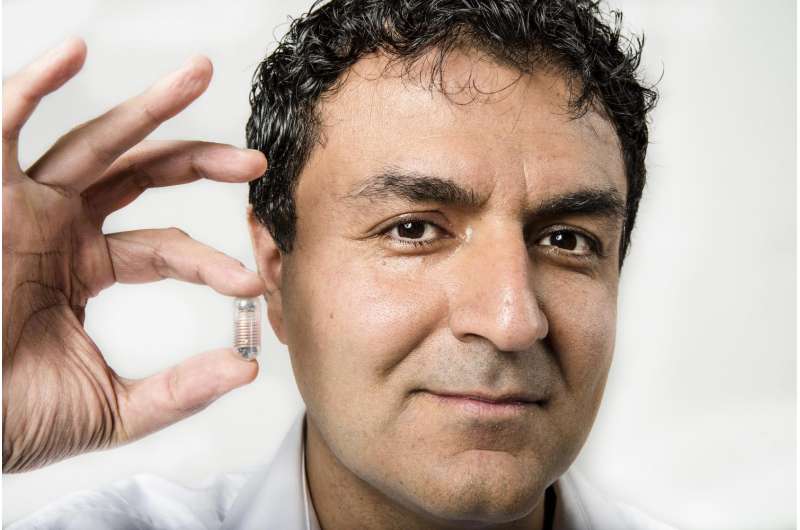Researchers complete phase one human trials of smart pills

Researchers at RMIT University in Melbourne, Australia, have successfully completed phase one human trials of ingestible capsules that have the potential to revolutionise the prevention and diagnosis of gut disorders and diseases.
The research team, led by the pills' co-inventor Distinguished Professor Kourosh Kalantar-zadeh, tested the ingestible smart capsules (the size of a vitamin pill) that journey through and measure gas levels in the gastrointestinal tract.
One in five people will suffer from a gastrointestinal disorder in their lifetime, with 30 per cent of patients remaining undiagnosed. RMIT is one of the leading universities in the world researching the development of ingestible sensors.
The ingestible technology has demonstrated several thousand -times more sensitivity to gut gases than alternative techniques.
"Currently, one of the only methods for diagnosing gut disorders, such as mal-absorption of carbohydrates, irritable bowel syndrome and inflammable bowel disease, is to measure hydrogen concentrations in the breath," Kalantar-zadeh said.
"However, breath tests are mired by a lack of sensitivity and specificity and are unable to provide the necessary gold standard for diagnosis."
Co-inventor Dr Kyle Berean said: "Ingestible sensors also offer a reliable diagnostic tool for colon cancer, meaning that people won't have to undergo colonoscopies in future."

A key finding from the initial trials was just how safe the new technology is.
"Smart pills are harmless and there is no risk of capsule retention," Berean said.
An added advantage is that the capsules can be synched with smartphones, meaning results are easily accessible by users and doctors online.
The potential applications from this technology are profound.
"The sensors allow us to measure all the fluids and gases in the gut giving us a multidimensional picture of the human body," Kalantar-zadeh said. "Gas sensing is just the beginning."
The human trials were undertaken with colleagues from Monash University, who Kalantar-zadeh was quick to praise.
"We have been lucky to have Monash medical academics helping us on this journey," he said. "Without their input we would not be able to proceed."
More information: Kourosh Kalantar-zadeh et al, Ingestible Sensors, ACS Sensors (2017). DOI: 10.1021/acssensors.7b00045
Provided by RMIT University



















